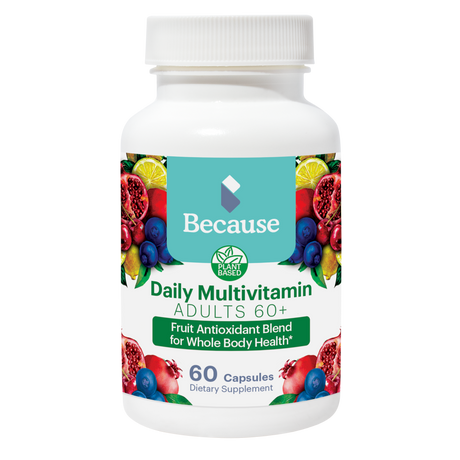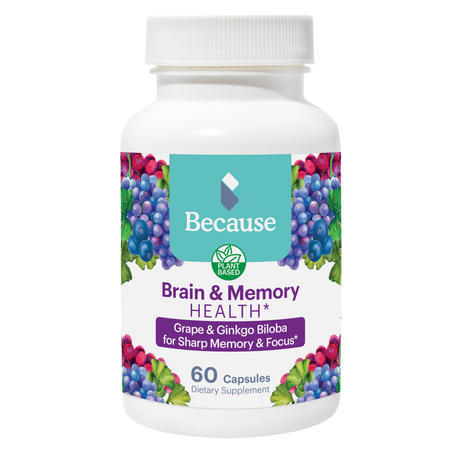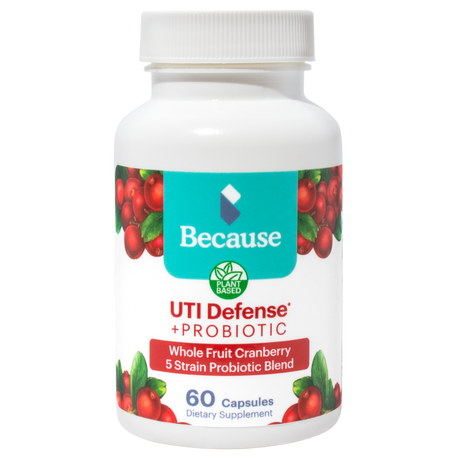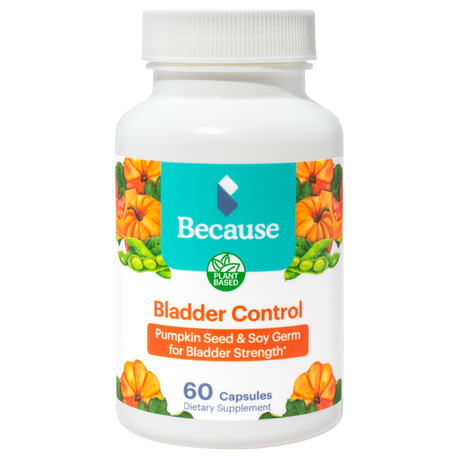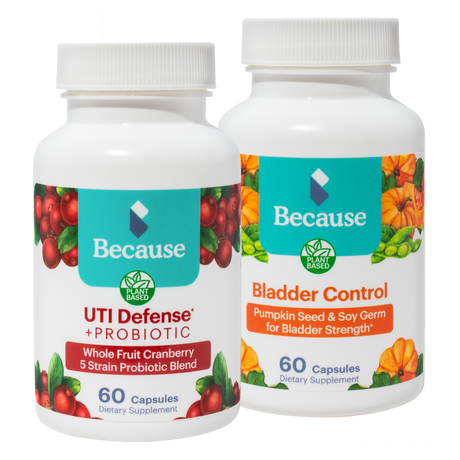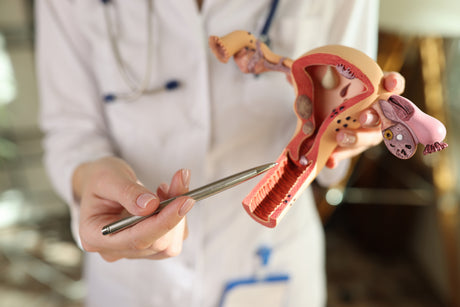Urinary tract infections (UTIs) are the most common bacterial infections diagnosed in older adults. Unfortunately, recurrent UTIs can occur regularly in some men and women.
The good news is that there are ways to reduce the risk of recurrent urinary tract infections by changing your habits and taking self-care measures. Many healthcare providers now recommend taking a probiotic supplement for UTI prevention. In this post, we’ll discuss how urinary tract infection probiotics work and give tips on choosing and using them.
Common Causes and Symptoms of UTI

As mentioned above, UTIs are the most prevalent bacterial infections, especially among women. Nearly half of all women will develop at least one UTI during their lifetime. Some symptoms of UTIs include:
- Burning during urination
- Abdominal pain and pressure
- Passing only a small amount of urine
- Needing to urinate more frequently
- Cloudy or foul-smelling urine
- Confusion (this is less likely to occur in younger women)
Specific causes of UTIs vary, but infections usually happen when bacteria enter the urinary tract. Escherichia coli or E. coli is most often the source. This bacteria is commonly found in stool and may linger around the rectum. If it travels to the urethra, the bacteria may enter the urinary tract. There, it can stick to the lining of the urethra or the bladder walls and reproduce, leading to an infection.
The following habits can cause UTIs or raise your risk of developing them.
Lack of Proper Hygiene
Not wiping the right way can introduce bacteria into the urinary tract. Always wipe from front to back to help prevent this from occurring. If you use incontinence pads or underwear, cleanse your private area with mild wipes or a cleansing spray each time you change your incontinence protection.
Sexual Activity
Being sexually active increases your risk of developing UTIs. During foreplay and intercourse, bacteria on your skin can get forced into your urethra, potentially opening the door to infection. Urinating after sex and cleansing your private area may lower the likelihood of UTIs.
Irritation
Irritation around your urethra and the surrounding tissue can make it easier for bacteria to become trapped. Wearing tight underwear, chafing from clothing, and reactions to skincare and personal care product ingredients trigger irritation.
Holding Urine
Urine acts as a natural cleanser, flushing bacteria out of the urinary tract. If you put off going to the bathroom when you have the urge to urinate, you could be unknowingly contributing to UTIs. Not drinking enough water to support urine production can also raise the risk of infection.
Hormonal Changes
After menopause, a woman’s risk for UTIs increases. The reduction in estrogen levels at the end of your reproductive years leads to changes in the vagina and the urinary tract. As a result, the urinary system may be more vulnerable to the effects of bacteria.
Health Issues
Any disease or condition that interferes with immune system function (like diabetes) can increase the risk of UTIs, making it harder for you to recover from infections when they occur. If your immune system doesn’t work correctly, it may be unable to fight off bacteria. Medications that suppress the immune system may also increase your chances of developing UTIs.
What’s the Vaginal and Urinary Microbiome?
We often think of bacteria as being harmful, but the truth is that some strains are good for us. Your gut, urinary, and reproductive systems are home to trillions of bacteria. These are known as probiotics — the good kinds of bacteria that keep the illness-causing varieties in check.
The collection of microorganisms in your digestive system is the gut microbiome. The vaginal and urinary microbiomes are the terms for the bacteria living in your reproductive system and urinary tract, respectively.
The Benefits of Probiotics for UTI Prevention

Infections are less likely to occur when your vaginal and urinary microbiomes are balanced. Probiotics can hinder the activities of harmful bacteria that give rise to urinary tract infections and bacterial infections (like bacterial vaginosis). Unfortunately, your health and lifestyle may reduce the number of beneficial bacteria in your body.
Some things that negatively impact the urinary microbiome include:
- Dehydration caused by not drinking enough water
- Sexual intercourse
- Health problems like diabetes
- Urinary incontinence
Some small studies show promising evidence that probiotic supplements that increase probiotic levels may support a healthy immune response, reducing the risk of UTIs. A 2018 meta-analysis of eight studies concluded there was significant evidence to suggest that probiotics lower the likelihood of UTIs. However, the research also noted that more extensive studies are necessary to investigate the potential benefits of probiotics for UTI prevention.
How to Use UTI Prevention Probiotics

You can use probiotics for UTI prevention in two main ways: eating foods and taking supplements. Yogurt and fermented foods (like kefir, sauerkraut, tempeh, and kimchi) are all excellent sources of probiotics. However, many struggle to eat enough of these foods for consistent health benefits from probiotics.
Probiotic bladder supplements make it easier to increase your probiotic intake. Follow these tips for best results when taking the supplement form of probiotics.
Talk to Your Doctor.
Although probiotics are generally safe for most people, you should always ask your medical provider for advice before adding any new supplement to your diet. Your healthcare provider will give you information about which type of probiotics to try and offer personalized guidance on taking them.
Follow the Directions.
Take probiotic supplements as directed by the instructions on the label (unless your doctor gives you different advice). Remember to take your supplement every day. Setting a reminder on your phone or using a timer pill bottle lid can help you remember when to take each dose.
Modify Your Diet.
Avoiding foods and drinks that can irritate your bladder will reduce chronic inflammation and potentially lower your risk for UTIs. Caffeine, alcohol, spicy foods, and acidic foods and drinks all have the potential to trigger bladder inflammation.
Eating a well-balanced diet rich in fruits, vegetables, lean protein, and whole grains prevents UTIs and improves overall health and well-being. Eating various nutrient-dense foods ensures you’re not deficient in crucial immune system vitamins and minerals (like vitamin C).
Sip 100% cranberry juice or take a supplement made from cranberries. Based on clinical research, the U.S. Food and Drug Administration now allows some juices and supplement manufacturers to advertise the limited evidence that their products may reduce the risk of UTI.
Can Probiotics Treat an Existing UTI?
Although evidence supports taking probiotics for UTI prevention, beneficial bacteria haven’t been proven to treat existing infections. Antibiotics are still the best way to treat an infection, so you should see your doctor whenever you experience UTI symptoms. Putting off medical attention could increase the risk of a UTI spreading to the kidneys and becoming a more severe infection.
Even though you can’t cure a UTI with probiotics, you may still want to try a supplement with your doctor's standard treatment. Antibiotic use can sometimes cause beneficial urinary and vaginal flora to die along with harmful bacteria, leading to adverse effects like vaginal yeast infections. Probiotics may balance your body’s microbiomes by replacing the good bacteria eliminated by antibiotics.
The Best Probiotics for UTI Prevention
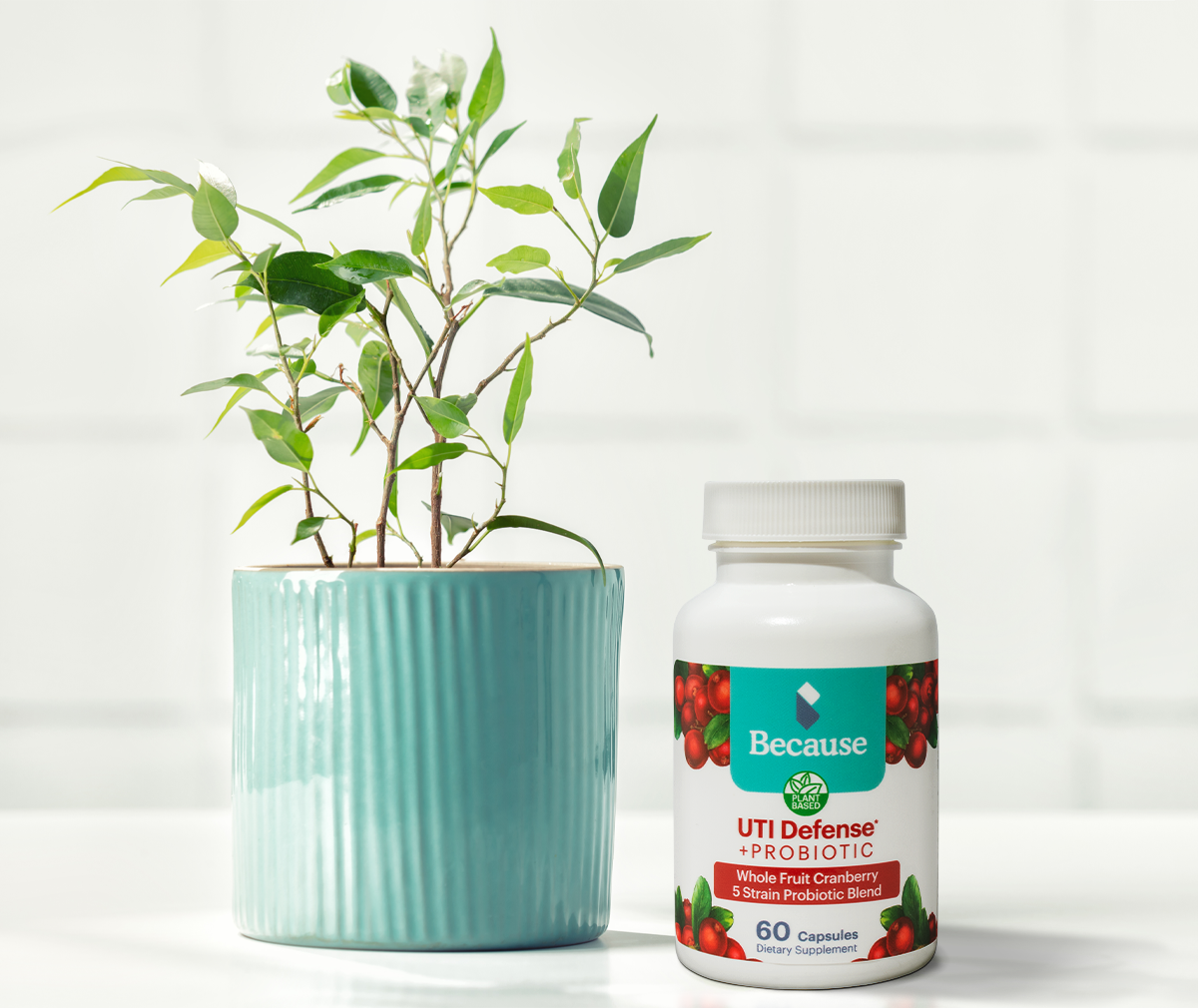
Many probiotic supplements are available today, so choosing one may initially seem daunting. Fortunately, selecting a supplement gets easier when you know how to compare them. Look for the following as you shop:
Colony Forming Units (CFUs)
The actual number of living microorganisms in probiotic supplements varies. You can easily compare products with the colony-forming units (CFUs). This number tells you how many live and active good bacteria organisms are present in a serving of a specific supplement.
The amount of CFUs used in clinical trials for studying probiotics for UTIs differs. In the systematic review mentioned above, the included studies used doses ranging from 10,000 to more than 10 billion CFUs.
Variety of Probiotic Strains
Many different beneficial bacteria make up the urinary and vaginal microbiome. As a result, supplements that provide a variety of probiotic strains may be more effective at supporting urinary and vaginal health.
Inclusion of Prebiotics
Prebiotics like fructooligosaccharide are substances that help probiotic bacteria thrive. When added to probiotic supplements, prebiotics may aid in the growth and development of good bacteria in the digestive system (and in other areas like the urinary tract and vagina).
Convenience
Some probiotic supplements require refrigeration. If you choose one that does, you may find it hard to continue taking your supplement daily when traveling or on the go.
If you’re looking for a probiotic supplement that reduces the risk of UTI Because Probiotic Support is a great option. Its proprietary blend of probiotic strains includes Bifidobacterium lactis, Lactobacillus plantarum, and Lactobacillus acidophilus. Each serving provides 40 billion CFUs of beneficial probiotics plus prebiotic fructooligosaccharide.
Learn more about Because Probiotic Supplement and order today.

